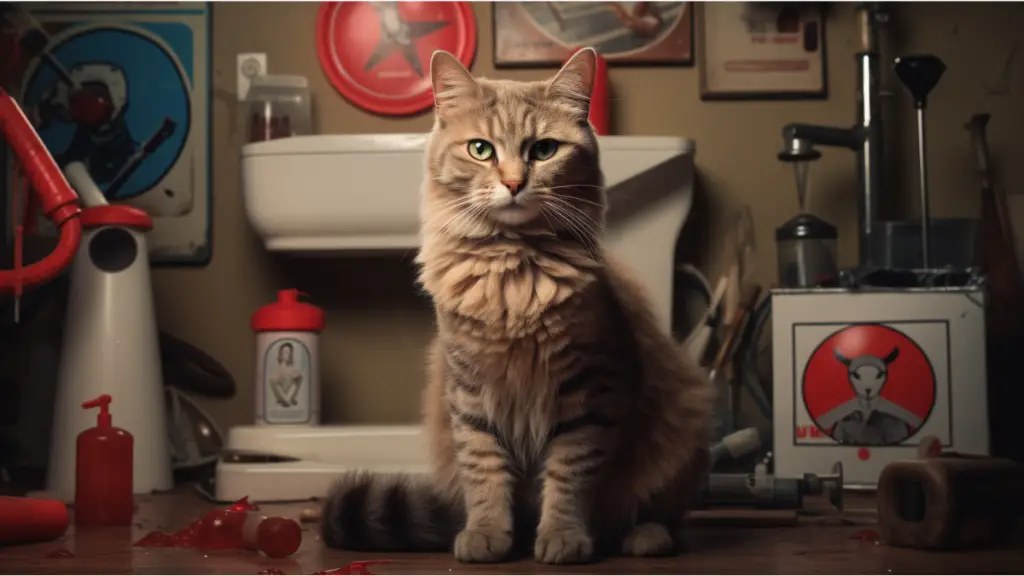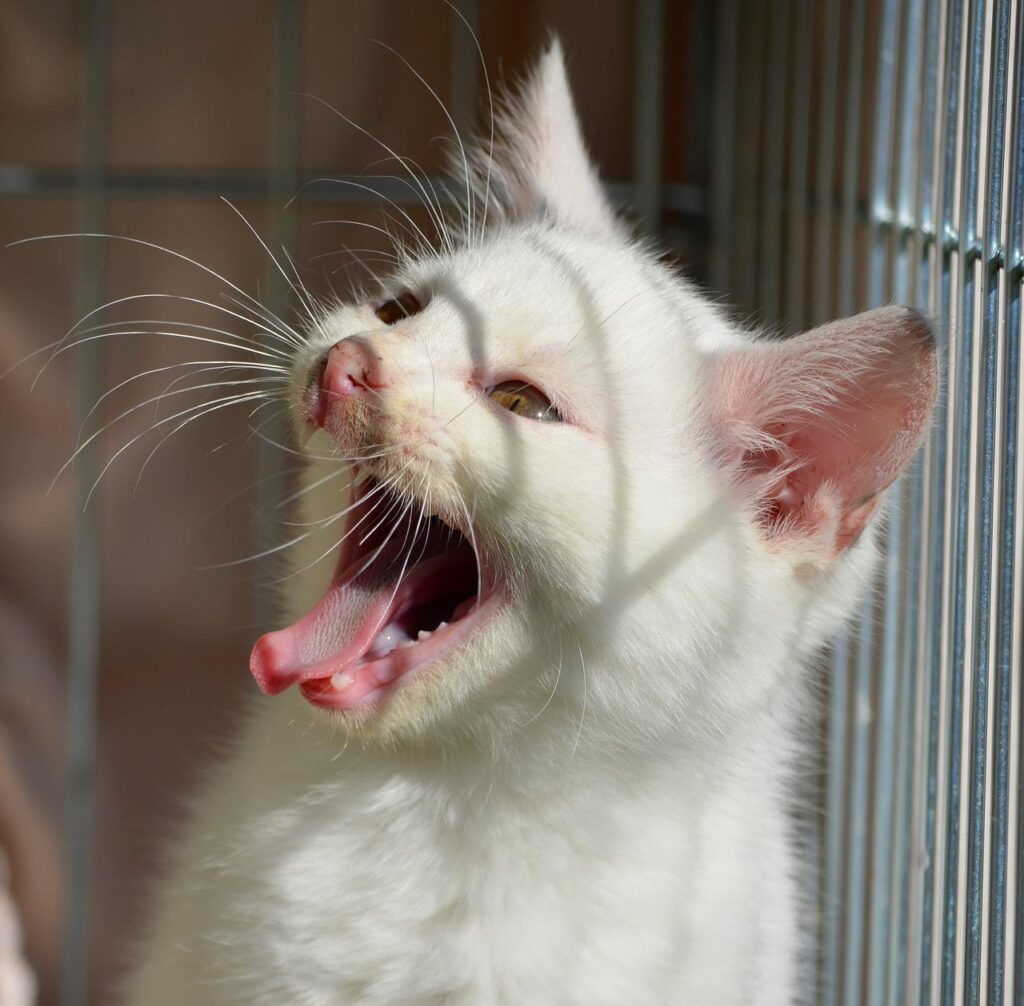You’re a devoted cat parent, always seeking their health and well-being. But have you ever wondered how often your feline friend should use the bathroom? Just like you, cats need to pee and poop regularly.
It’s normal for them to pee 2 to 6 times and poop at least once daily. However, if they haven’t done either in 72 hours, it’s time to visit the vet. Various stressors, injuries, or underlying health conditions can disrupt their bathroom habits, potentially leading to serious illnesses or organ damage.
By keeping a keen eye on your cat’s bathroom routine, you ensure their comfort and ward off any health complications. So, let’s delve into understanding cat bathroom habits, the potential risks, illnesses, and when to seek help. It’s all about being proactive.
- Key Takeaways
- Normal Elimination Frequency
- Prolonged Bathroom Absence
- Potential Health Risks
- Medical Intervention
- Additional Resources
- Frequently Asked Questions
- What are some signs that my cat is experiencing discomfort while trying to use the bathroom?
- Can I take preventive measures to ensure my cat doesn't struggle with elimination?
- How does a cat's diet influence bathroom habits and potential health risks?
- What behavioral changes might I notice in my cat if they have trouble going to the bathroom?
- Can certain breeds of cats be more prone to bathroom-related health issues?
- Conclusion
Key Takeaways
- Cats can go without peeing for 24 to 48 hours, but if it goes beyond 48 to 72 hours, it is important to see a vet.
- Cats can safely hold poop for 24 to 36 hours, but if it goes beyond 48 to 72 hours, it is necessary to see a vet.
- The inability to urinate or defecate can lead to toxin buildup, illness, and organ damage, which can be life-threatening.
- Stress, changes in routine, injury, dehydration, and certain illnesses can affect a cat’s ability to pee or poop.
Normal Elimination Frequency
A healthy cat typically pees 2 to 6 times a day and poops at least once daily, depending on their age, water intake, diet, and other factors.
The causes of decreased elimination can vary, often involving a change in diet, stress, or an underlying health issue. Dehydration, for instance, can significantly impact your kitty’s bathroom habits, leading to constipation or urinary problems.
If you notice any changes in your cat’s bathroom habits, it’s crucial to figure out what’s happening. Remember, you’re not just serving your feline friend; you’re ensuring their well-being and longevity.
So, be observant, understand the effects of dehydration, and seek help when needed. Because the sooner you act, the better it is for your beloved pet.
Prolonged Bathroom Absence
If your furry friend fails to use the litter box for an extended period, it’s vital to consult with a vet promptly. Unusual bathroom habits can be a sign of stress or serious health issues. Causes of prolonged bathroom absence might include changes in routine, undiagnosed illnesses, or dehydration.
To keep your cat healthy, it’s essential to promote regular elimination. Ensure your pet gets ample fresh water daily and maintains a balanced diet. A peaceful, stress-free environment can also make a big difference. Keep an eye on your cat’s bathroom habits and note any changes. Remember, it’s better to seek help earlier than later.
Serving your furry friend with the best care ensures their well-being and happiness.

Potential Health Risks
When your feline friend doesn’t pee or poop for an extended period, it’s not just the discomfort they’re dealing with, but potential serious health complications can arise, too. Lack of urination may lead to toxin buildup, causing illness and even organ damage.
Effects of stress on bathroom habits can also be a factor, as changes in routine or environment can disrupt their usual patterns.
Common causes of constipation in cats include dehydration and certain chronic illnesses. If your kitty is straining in the litter box or producing little to no stool, it’s essential to consult a vet.
Remember, a cat’s health is delicate. Timely intervention not only alleviates their suffering but can also prevent further complications. Always put your pet’s welfare first.

Medical Intervention
It’s crucial to get your furry friend to the vet if they’ve not been able to pee or poop for more than 48 hours. A vet consultation can help identify any underlying issues causing this abnormal behavior. They can run tests and diagnose conditions like FLUTD, urethritis, or cystitis, which might be causing urination problems. Similarly, they can check for issues like arthritis, diabetes, or kidney disease that could impede defecation.
| Underlying Issue | Potential Treatment |
|---|---|
| FLUTD, Urethritis, Cystitis | Medication, diet changes |
| Arthritis, Diabetes, Kidney Disease | Medication, pain management |
Remember, early intervention is key to preventing complications. Explore treatment options, follow the vet’s advice, and ensure your kitty is comfortable and healthy.
Additional Resources
Don’t forget to utilize additional resources like our blog and social media channels to stay informed and updated about your furry friend’s health and well-being. We regularly post articles on cat litter alternatives and tips for litter box training. These resources can help you better understand your cat’s bathroom habits and ensure they are comfortable and healthy.
Remember, knowledge is power. The more you learn about your cat’s needs, the better you can care for them.
Keep serving your furry friend with love and dedication; they will reward you with their companionship and love.
Frequently Asked Questions
Conclusion
Remember, keeping an eye on your cat’s bathroom habits is crucial. If your cat hasn’t peed or pooped within 48 hours, it’s time to call the vet.
Various health issues may affect them, and early intervention can prevent complications. Don’t hesitate to seek help, it’s better to be safe than sorry.
Let’s keep our furry friends healthy and happy!
